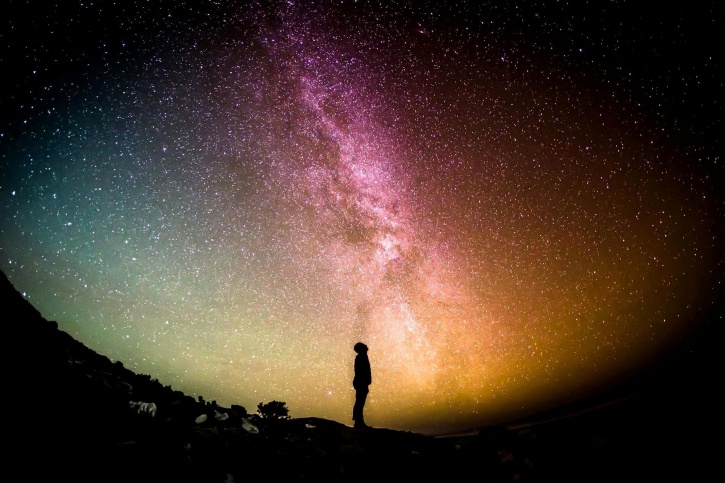בסיעתא דשמיא | ||
☰︎ Menu | 🔍︎
Search // Main //
🖖︎ Prayers & Praxes // 🌔︎ Prayers for the Moon, Month, and Festival Calendar // Prayers for the Moon's Renewal // Rosh Ḥodesh 
קידוש לראש חודש, לפי מסכת סופרים | A Sanctification of the New Month, reconstructed from Masekhet Soferim by Isaac Gantwerk MayerThis is a litanic Ḳiddush for a Rosh Ḥodesh meal, constructed based on the Ḳiddush for Rosh Ḥodesh in Jerusalem as described in Masekhet Soferim chapter 19:9, mostly following the GRA’s edition. Traditionally it would be done in the presence of twelve town elders and twelve scholars of ritual purity, but today we could adapt it to be recited at a festive meal for Rosh Ḥodesh in the presence of seven — the minyan count according to the traditional Western practice recorded elsewhere in Masekhet Soferim 10:7. . . . A ritual for a public blast of the silver trumpet on the new moon, to be inserted before the recitation of the psalm for the new month. It is the hope of the editor that the fulfillment of this joyous mitzvah will once more be practiced throughout all Israel. Or, barring that, at least a few more places. . . . “God the Life of Nature” by Rabbi Mordecai Kaplan was first published in his Sabbath Prayer Book (Jewish Reconstructionist Foundation 1945), p. 382-391, where it appears side-by-side with its translation into Hebrew by Abraham Regelson. . . . This is the prayer for Rosh Ḥodesh (the day of the New Moon, and first day of the month in the Jewish calendar) included by Fanny Schmiedl Neuda in her collection of teḥinot in vernacular German, Stunden der Andacht (1855). Fanny Neuda likely either composed or translated this teḥinah into German (from Yiddish) while performing in the capacity of firzogerin (precentress) of the weibershul (women’s gallery) in her husband’s synagogue in Loštice, Bohemia. The translation in English was made by Moritz Mayer in his abridged translation of Neuda’s collection, Hours of Devotion (1866). . . . A paraliturgical prayer for the New Moon on Rosh Ḥodesh. . . . Au Renouvellement Du Mois: Sur la Brièveté de la Vie | At the New Moon: On the Brevity of Life, by Rabbi Arnaud Aron & Jonas Ennery (1848)To the best of my ability, this is a faithful transcription of a teḥinah (supplicatory prayer) composed in parallel to the Prayer for the New Moon, following in the paraliturgical tradition of Yiddish tkhines, albeit written in French. . . . “Meditation on the works of God” by Grace Aguilar was published posthumously by her mother Sarah Aguilar in the UK edition of Sacred Communings, pp. 79-82. It is not found in the US edition. . . . Beim Einsegnen des Neumondes (ver. 1) | At the Blessing of the New Moon (ver. 1), by Yehoshua Heshil Miro (1829)“Vor dem Einsegnen des Neumondis” was written by Yehoshua Heshil Miro and published in his anthology of teḥinot, בית יעקב (Beit Yaaqov) Allgemeines Gebetbuch für gebildete Frauen mosaischer Religion. In the original 1829 edition, תחנות Teḥinot ein Gebetbuch für gebildete Frauenzimmer mosaischer Religion, it appears as teḥinah №16, on pp. 20-21. In the 1835 and 1842 editions, it appears as teḥinah №16 on pp. 23-24. . . . Beim Einsegnen des Neumondes (ver. 2) | At the Blessing of the New Moon (ver. 2), by Yehoshua Heshil Miro (1829)“Vor dem Einsegnen des Neumondis (Desselben Inhalts)” was written by Yehoshua Heshil Miro and published in his anthology of teḥinot, בית יעקב (Beit Yaaqov) Allgemeines Gebetbuch für gebildete Frauen mosaischer Religion. In the 1835 and 1842 editions, it appears as teḥinah №17 on pp. 24-25. . . . An English translation of Psalm 104 set side-by-side with the Masoretic text. . . . Rabbi Zalman Schachter-Shalomi, z”l, included his translation of “Barkhi Nafshi” (Psalms 104) for Rosh Ḥodesh in his Siddur Tehillat Hashem Yidaber Pi (2009). To the best of my ability, I have set his translation side-by-side with the verses comprising the Psalm. –Aharon N. Varady . . . Psalms 104, translated by Mordecai Kaplan and presented as “God as Creator and Renewer of Nature” can be found on p. 360-5 of his The Sabbath Prayer Book (New York: The Jewish Reconstructionist Foundation, 1945), the first prayer in a subsection of supplementary prayers called “GOD IN NATURE.” . . .
Stable Link:
https://opensiddur.org/index.php?cat=401 Associated Image:
 sky, night, galaxy, milky way, stars, explorer, person, shadow, silhouette (license: CC0)(This image is set to automatically show as the "featured image" in category pages and in shared links on social media.) sky, night, galaxy, milky way, stars, explorer, person, shadow, silhouette (license: CC0)(This image is set to automatically show as the "featured image" in category pages and in shared links on social media.)
Terms of Use:
Be a mentsch (a conscientious, considerate person) and adhere to the following guidelines:
Additional Notes:
Support this work:
The Open Siddur Project is a volunteer-driven, non-profit, non-denominational, non-prescriptive, gratis & libre Open Access archive of contemplative praxes, liturgical readings, and Jewish prayer literature (historic and contemporary, familiar and obscure) composed in every era, region, and language Jews have ever prayed. Our goal is to provide a platform for sharing open-source resources, tools, and content for individuals and communities crafting their own prayerbook (siddur). Through this we hope to empower personal autonomy, preserve customs, and foster creativity in religious culture. If you like what you've found here, please help keep our project alive and online with your financial contribution.
ויהי נעם אדני אלהינו עלינו ומעשה ידינו כוננה עלינו ומעשה ידינו כוננהו "May the pleasantness of אדֹני our elo’ah be upon us; may our handiwork be established for us — our handiwork, may it be established." –Psalms 90:17
| ||
| Sign up for a summary of new resources shared by contributors each week
  |